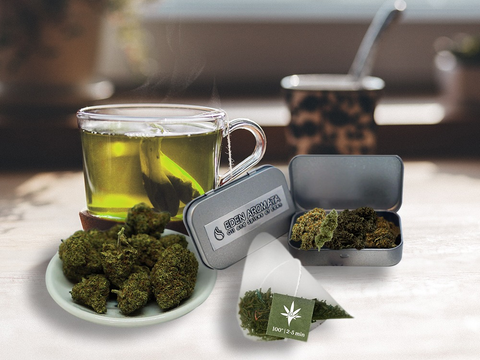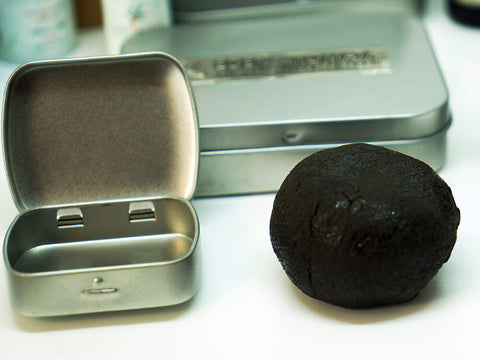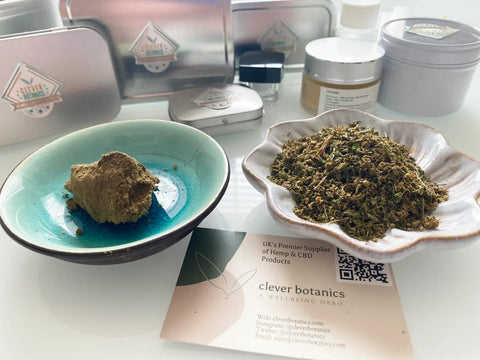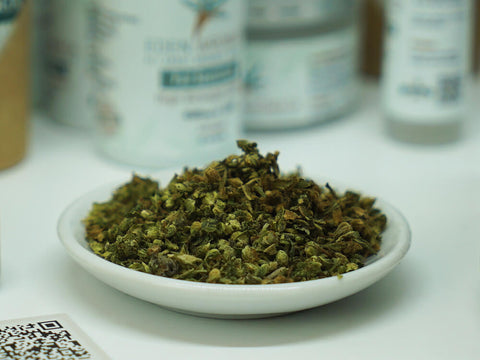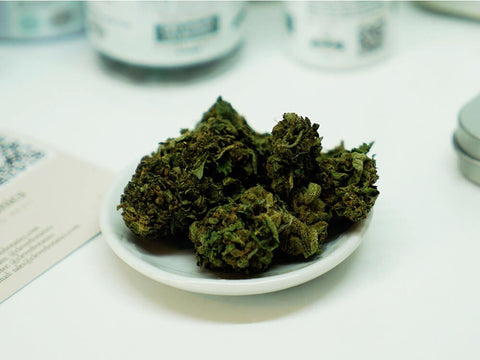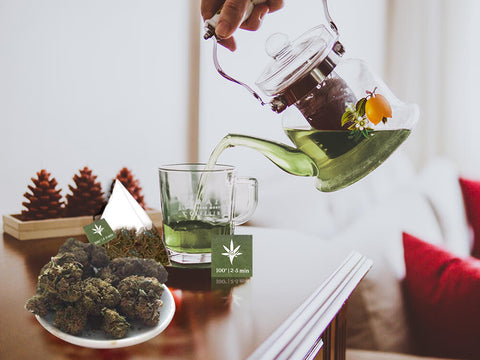CBD & Sleep Benefits, Risks And More
Increasingly, a popular strategy for sleeping better is taking Indica variety of cannabidiol (CBD), a derivative of cannabis. A few emails we receive from customers that want to try the CBD product as they have heard that CBD can improve sleep and decrease anxiety and, therefore, help with their sleep issues. Early studies indicate that higher dosages of CBD may support sleep.
Cannabis-related items for health and wellness have seen a surge in sales in recent years. CBD is one of these chemicals that have gained attention and appeal as a natural sleep aid. CBD, or cannabidiol, is a non-psychoactive compound found in hemp and marijuana plants. Some research suggests that CBD may help with sleep, as it can interact with the body's endocannabinoid system to regulate the sleep-wake cycle. However, more research is needed to fully understand the effects of CBD on sleep, and the quality of available studies is generally low.
It is important to note that the use of CBD is not regulated by the Food and Drug Administration (FDA) or similar bodies in the E.U. Please do consult with a healthcare professional before using CBD to help with sleep.
The benefits and drawbacks of using CBD for sleep
Some science and anecdotal data show that CBD can also help one for better sleep. Research on CBD's impact on sleep disturbances is still in its early stages. Some users of CBD for chronic pain claim that it helps them sleep better. If the pain alleviation helps these people sleep better or whether CBD itself has an impact on their sleep is still unknown.
Is CBD legal? Here’s what you need to know, according to science
The legality of CBD (Cannabidiol) varies from country to country and state to state. In general, CBD derived from hemp plants that contain 0.2% or less of THC (Tetrahydrocannabinol) is legal in many countries, including the United Kingdom. However, the legality of CBD can be complex and is subject to change, so it is advisable to check the specific laws of your country or state before purchasing or using it. Additionally, it is important to ensure that the CBD product you are using is of high quality and has been lab-tested to verify its potency and purity.
Could CBD Make You Feel Refreshed When You Wake Up?
It's possible that CBD could make some people feel refreshed when they wake up, as CBD is known to have a calming and relaxing effect on the body.

How Do These CBD Products Help With Sleep?
The exact mechanism by which CBD may help with sleep is not fully understood. However, it is thought to interact with the body's endocannabinoid system, which plays a role in regulating the sleep-wake cycle. CBD may help to reduce anxiety and improve relaxation, which in turn can promote better sleep. Additionally, some research suggests that CBD may increase the levels of certain neurotransmitters, such as GABA, which are involved in promoting relaxation and reducing anxiety. However, more research is needed to fully understand the effects of CBD on sleep and how it may be used as a sleep aid.
CBD may have several potential benefits for sleep, including:
-
Reduces anxiety and stress: CBD may help reduce anxiety and stress, which are common factors contributing to insomnia and sleep disturbances. By promoting relaxation, CBD can potentially lead to better sleep.
-
Improves sleep quality: Some studies suggest that CBD can positively affect sleep quality by influencing the sleep-wake cycle, increasing the amount of deep sleep, and reducing nighttime awakenings.
-
Pain relief: CBD is known for its anti-inflammatory and analgesic properties, which can help alleviate pain and discomfort for those suffering from chronic pain conditions. This can indirectly improve sleep by allowing individuals to fall asleep more easily and experience less pain during the night.
-
No psychoactive effects: Unlike THC, another compound found in cannabis, CBD does not have psychoactive effects. This means that using CBD for sleep will not result in the "high" typically associated with cannabis use.
It is important to note that more research is needed to fully understand the effects of CBD on sleep, and the quality of the available studies is generally low. The use of CBD is not regulated by the Food and Drug Administration (FDA) or the equivalent European Medicines Agency (EMA). Consult with a healthcare professional before using CBD to help with sleep.
CBD Oil:
CBD oils can be taken in drop form or placed under the tongue, or the water-soluble versions can be mixed into food and drinks creams and lotion capsules and tablets: these are swallowed like a standard tablet and can be convenient for people patches: In oil or Water-Soluble format, can be applied to the skin and release CBD directly onto the surface of the skin.
Here are some of our products:
1: Super high 25MG CBD Gummies, vegan friendly with a mixed fruit taste.
2: Full & Broad Spectrum Hemp Extract CBD Oil
3: Dark or Cashew CBD Chocolate Bars with 35mg of CBD
4: CBD SoftGels with Melatonin
5: Eden Aromata High Enterage Super Strong Aromatic Balm Salve
The Endocannabinoid System and Sleep
The endocannabinoid system (ECS) is a complex system of receptors and neurotransmitters that plays a role in regulating many physiological processes, including sleep. The ECS is responsible for maintaining balance, or homeostasis, in the body and modulating responses to stress and other stimulations.
Studies suggest that the ECS plays a role in regulating the sleep-wake cycle by controlling the release of neurotransmitters involved in promoting wakefulness and suppressing the release of neurotransmitters involved in promoting sleep.
CBD, a compound found in hemp and marijuana plants, is thought to interact with the ECS and modulate the release of neurotransmitters, potentially helping to regulate the sleep-wake cycle and improve sleep. However, more research is needed to fully understand the effects of CBD on the ECS and sleep, and the quality of available studies is generally low.
What Are the Potential Risks?
While CBD is generally considered safe, there are some potential risks associated with using CBD to help with sleep:
-
Limited research: While there is some evidence supporting the benefits of CBD for sleep, the research is still limited, and more studies are needed to fully understand its long-term effects and optimal dosages.
-
Inconsistency in product quality: The CBD market is not fully regulated, leading to potential inconsistencies in product quality, potency, and safety. It is crucial to purchase CBD products from reputable sources and verify third-party lab testing results.
-
Side effects: Some individuals may experience side effects when using CBD, such as drowsiness, dry mouth, diarrhea, and changes in appetite or weight. These side effects can be mild or more severe, depending on the individual and the dosage.
-
Drug interactions: CBD can interact with certain medications, potentially leading to adverse effects or reduced effectiveness of the medication. It is important to consult with a healthcare professional before starting CBD, especially if you are taking other medications.
-
Legal status: Although CBD is legal in many countries and states, its legal status varies across jurisdictions. It is essential to research and understand the local laws and regulations regarding CBD use in your area.
-
Dependence: Long-term use of CBD may lead to dependence and withdrawal symptoms if discontinued abruptly. It is important to use CBD responsibly and under the guidance of a healthcare professional.
Will CBD for Sleep Make You Drowsy or High?
CBD is a non-psychoactive compound found in hemp and marijuana plants and will not make you drowsy or high in the traditional sense. Unlike THC, the psychoactive compound in marijuana, CBD does not produce the "high" that is associated with marijuana use.
While some people may experience drowsiness as a side effect of using CBD, this is generally not the case for most people. In fact, some research suggests that CBD may have the opposite effect and increase wakefulness, although more research is needed to fully understand the effects of CBD on sleep.
It's important to note that the effects of CBD can vary greatly depending on the quality and purity of the product, the dose, and individual factors such as age, weight, and medical history.
Conclusion
In conclusion, while CBD has shown potential as a sleep aid for some individuals, more research is needed to determine its long-term effects and optimal dosages. Always consult with a healthcare professional before starting CBD, and make sure to purchase from reputable sources to ensure product quality and safety. Some or our customers report back that the Indica flowers consumed via vaping help sleep much better around 30 minutes before bed time. However the Hybrids also work well a tad longer to act. They give it around 40 minutes before bed time.









